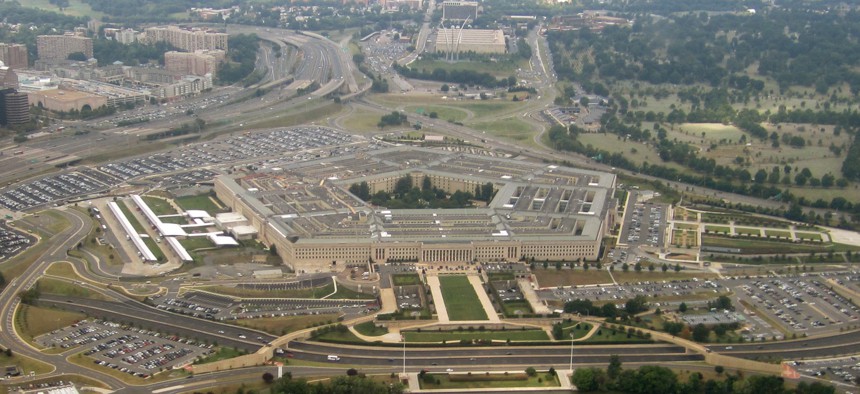
Flickr user La Citta Vita
Pentagon Watchdog’s Handling of Whistleblowers Under GAO Review
Whistleblower advocates applaud requirement for expanded probe in Defense bill.
Congress has ordered its watchdog agency to expand a probe into the policies and treatment of whistleblowers at the Defense Department inspector general’s office.
Language in the just-completed fiscal 2017 National Defense Authorization Act—debated for months--requires the Government Accountability Office to “review the integrity” of the sometimes controversial Defense Department whistleblower program, including providing an assessment of the extent to which it “meets executive branch policies and goals for whistleblower protections.”
Among other provisions, the bill requires auditors to make a judgment on “the adequacy of procedures to handle and address complaints submitted by employees…to ensure that such employees themselves are able to disclose a suspected violation of law, rule, or regulation without fear of reprisal.”
GAO already had begun an inquiry along those lines in late October. A GAO spokesman told Government Executive that projects with more pressing legislative deadlines held up progress on that probe, but work should resume in the spring.
A spokeswoman for acting Defense IG Glenn Fine said the project is based on a “long-standing request for a fair and balanced review — a standard procedure that will finally put this issue to rest. We welcome the GAO review.”
The nonprofit Government Accountability Project on Tuesday linked the provision in the defense bill to its work on behalf of several clients, including prosecuted former NSA software analyst and critic Thomas Drake, and fired assistant DOD inspector general John Crane.
GAP, which has also represented exiled former National Security Agency contractor Edward Snowden, said in a press release that the expanded GAO investigation could lay the “groundwork for a new, effective anti-leaks strategy to protect classified information without betraying the public trust.”
Snowden caused an uproar by disclosing a domestic surveillance program to news organizations. Tom Devine, GAP’s legal director, noted that Snowden identified retaliation against Drake, who lost his NSA job for allegedly mishandling classified information and faced 35 years in prison before his case was dropped, as the reason he leaked information rather than complain about domestic surveillance to his supervisors or the DOD inspector general.
Crane, who this year went public with allegations that officials in the watchdog’s office retaliated against whistleblowers, destroyed records and altered audits under political pressure, said “the challenge for the incoming Trump administration is that these investigations are in effect examining whether current Pentagon IG leadership has become an existential threat to the national security of the United States by forcing whistleblowers like Snowden to view the media as their court of last resort.”
The Defense Authorization Act also requires GAO auditors to assess the extent to which the DOD watchdog “has thoroughly investigated and substantiated allegations within the past 10 years against civilian officials of the Department of Defense appointed to their positions by and with the advice and consent of the Senate, and whether Congress has been notified of the results of such investigations.”
Finally, GAO will assess the ability of the IG’s office and the military service IGs to “access agency information necessary to the execution of their duties, including classified and other sensitive information, and an assessment of the adequacy of security procedures to safeguard such classified or sensitive information.”
Photo: Flickr user La Citta Vita







